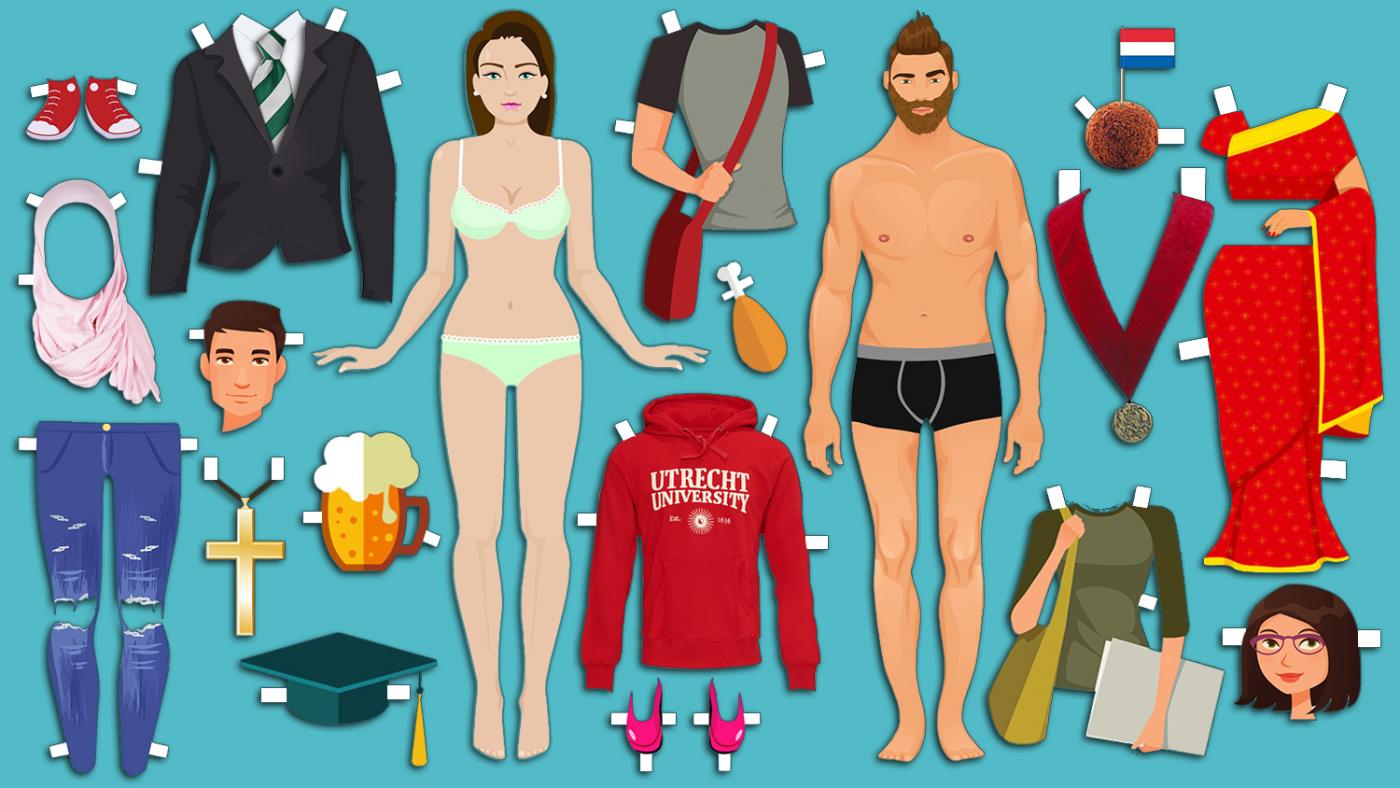Who or what determines the student's identity?

Students are often still searching for their identity. In the current world, many types of identities based on race, religion, nationality, culture or social class are still being expanded and are still supplemented with new options. I believe, like philosopher Anthony Appiah, that many students are mistakenly reducing themselves to their national, religious, racial or association identity. According to Appiah, "the" identity does not exist, and it is also constantly subject to change. I myself take an example from my girlfriend who, thanks to her travelling past, has detached herself from these stereotypes. She sees herself as a "Third Culture Kid". These people are less rooted in one particular culture, but, by contrast, are more flexible towards a rich number of different cultures.
It is this cultural sensitivity and its adaptive capacity that enable it to thrive in a variety of unknown environments. Skills that would also be particularly helpful for Dutch students who generally feel connected to their "own" habits and traditions. People who derive their identity from this, hold on to these rules and are judged if they deviate from this as well. The display of one dominant culture is also strongly present within student associations. It is just like a career at the Zuidas, the business centre with consulting firms ans law offices in Amsterdam: you are either up or out. Once you have joined an association, you must quickly learn all the traditions and customs to become one of the many. But is it wise to tie your identity to the student association? Reality is much more complex than this microcosm. One that often only consists of exaggerated stereotypes.
Are student associations future-proof?
Take the rituals within an association. Although they play an important role in supporting the social process to get members in line, I believe that at least some of these traditions create an identity that is no longer of this time. The student association of the 21st century is not yet future-proof.
Diversity
For example, in most cases the association should be much more inclusive and the integrity within the association life must be better protected. For example, foreign students and LGBT people are not nearly as welcome in associations as a "normal" student, and the question is whether internationals will ever be welcomed with open arms within these old Dutch clubs. Foreign students are more often the target of stereotyping remarks in the Netherlands, because Dutch people like to say what they think aloud. This directness would, however, adorn itself with a load of modesty. In addition, many associations practice "window dressing", where they place the only person, or one of the few, with a different ethnic background in the foreground of their organisation with the idea: "look at us being diverse". What does that say about our group identity? In any case, it is not yet an appropriate diversity policy to actually become more diverse.
Hazing
In my opinion, hazing also no longer fits in this century. Tougher action against hazing is not a bad idea either. Last year, a 20-year-old student from KU Leuven died, after he had ended up in a coma by drinking fish oil during his hazing. Minerva in Leiden also had to drastically change its "suffocating" corp culture in 2018 after excesses with alcohol, drugs and physical violence. Is it the intention that new students adopt the traditions of senior students? Should they not rather design their own traditions and thereby create their own identity? A simple introduction weekend in the Veluwe creates a bond as well.
Alcohol & drugs
Another component that gives meaning to the student identity is alcohol consumption. Dutch students are among the most frequent drinkers in Europe. Although the university is currently pursuing a stricter alcohol and smoking policy, and the Ministry of Health, Welfare and Sport is considering the negative consequences of alcohol, the rest of society does not seem to ask many critical questions about this. Drinking beer and wine is so socially accepted that drinking games regularly lead to excesses and sometimes to death. Smoking joints, on the other hand, is heavily demonised among students, while the drug debate in the Netherlands has opened again. With its new proposal, the political party D66 wants to look at the possibilities for legalising cocaine and XTC use, and all kinds of reports are published about the positive effect of cannabis on cancer patients. In retrospect on identity, this shows that students appreciate those who sit on a crate, but marginalise those who smoke a joint. Does this still fit the current spirit of this time and what do students nowadays find normal with regard to alcohol and drug use? The public debate on this should be opened.
First impressions
With the arrival of thousands of students who participate in the Utrecht Introduction Time each year, we, as Utrecht students, just like in other student cities, have the opportunity to present ourselves again in September. The introduction days have a connecting character and create a flying start for every student. That is why we need to profile ourselves in a modern way - specifically to tell the social story about student associations, which remains underexposed in reporting.
Taking advantage of someone else's opinion is sometimes useful, but it also puts your critical thinking skills at risk. The fallacy is that students in groups think that they make the decisions themselves, although in practice they are much influenced by their student associations. An association that determines what you should do and think is comfortable, but what does it say about you? An open attitude towards other cultures, on the other hand, has a liberating and enlightening character. Associations should thus spend more time with their members on the education of students, because the association life simply plays an important role in the formation of the individual identity of its members.